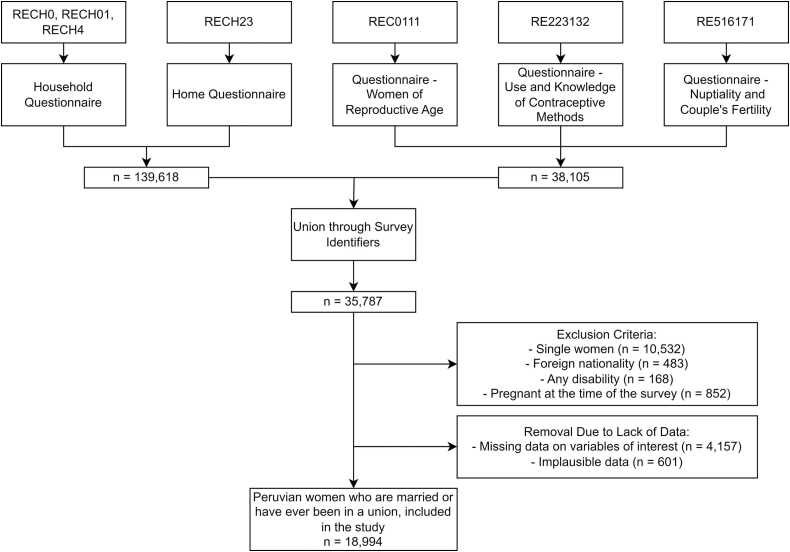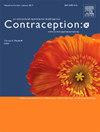Women's empowerment and contraceptive use in ever-married adult women: Analysis of a population-based survey in Peru
Q2 Medicine
引用次数: 0
Abstract
Objective
Evaluate the relationship between women's empowerment and the use of modern contraceptive methods.
Study design
A secondary analysis was conducted using the 2022 Demographic and Health Survey of Peru, selecting women who were married, ever married, or cohabiting with a partner. The survey-based Women’s Empowerment Index was employed to assess empowerment, and the dependent variable was the use of modern contraceptives at the time of the interview. Regression analysis was performed using generalized linear models of the Poisson family.
Results
Sixty percent of the selected women were using a contraceptive method at the time of the survey. We found an association between low empowerment levels and lower frequency of modern contraceptive use (aPR = 0.87, p = 0.001). Additionally, among the empowerment domains, we observed that lower levels of independence (aPR = 0.89, p = 0.001) and tolerance of intimate partner violence (aPR = 0.75, p = 0.003) were associated with a lower frequency of modern contraceptive use.
Conclusion
Women's empowerment is related to the use of modern contraceptive methods, as well as its various domains. Future studies should evaluate different perspectives, such as empowerment and decision-making in the sexual and reproductive aspects.
Implications
The level of female empowerment is directly related to the use of modern contraceptive methods, a relevant situation in culturally diverse developing countries. Sexual health promoters need to encourage autonomy in the decision to use appropriate methods for proper family planning.

妇女赋权和避孕药具在已婚成年妇女中的使用:秘鲁人口调查分析。
目的:评价妇女赋权与现代避孕方法使用的关系。研究设计:利用2022年秘鲁人口与健康调查进行二次分析,选择已婚、曾经结婚或与伴侣同居的妇女。采用基于调查的妇女赋权指数来评估赋权,因变量是访谈时现代避孕药具的使用情况。采用泊松族广义线性模型进行回归分析。结果:60%的被选妇女在调查时使用了避孕方法。我们发现低授权水平与较低的现代避孕药具使用频率之间存在关联(aPR = 0.87, p = 0.001)。此外,在赋权领域中,我们观察到较低的独立性水平(aPR = 0.89, p = 0.001)和对亲密伴侣暴力的容忍度(aPR = 0.75, p = 0.003)与较低的现代避孕药具使用频率相关。结论:妇女赋权与现代避孕方法的使用及其各个领域有关。今后的研究应评价不同的观点,例如性和生殖方面的授权和决策。启示:女性赋权的水平与现代避孕方法的使用直接相关,这是文化多样化的发展中国家的相关情况。性健康促进者需要鼓励自主决定使用适当的方法进行适当的计划生育。
本文章由计算机程序翻译,如有差异,请以英文原文为准。
求助全文
约1分钟内获得全文
求助全文
来源期刊

Contraception: X
Medicine-Obstetrics and Gynecology
CiteScore
5.10
自引率
0.00%
发文量
17
审稿时长
22 weeks
 求助内容:
求助内容: 应助结果提醒方式:
应助结果提醒方式:


